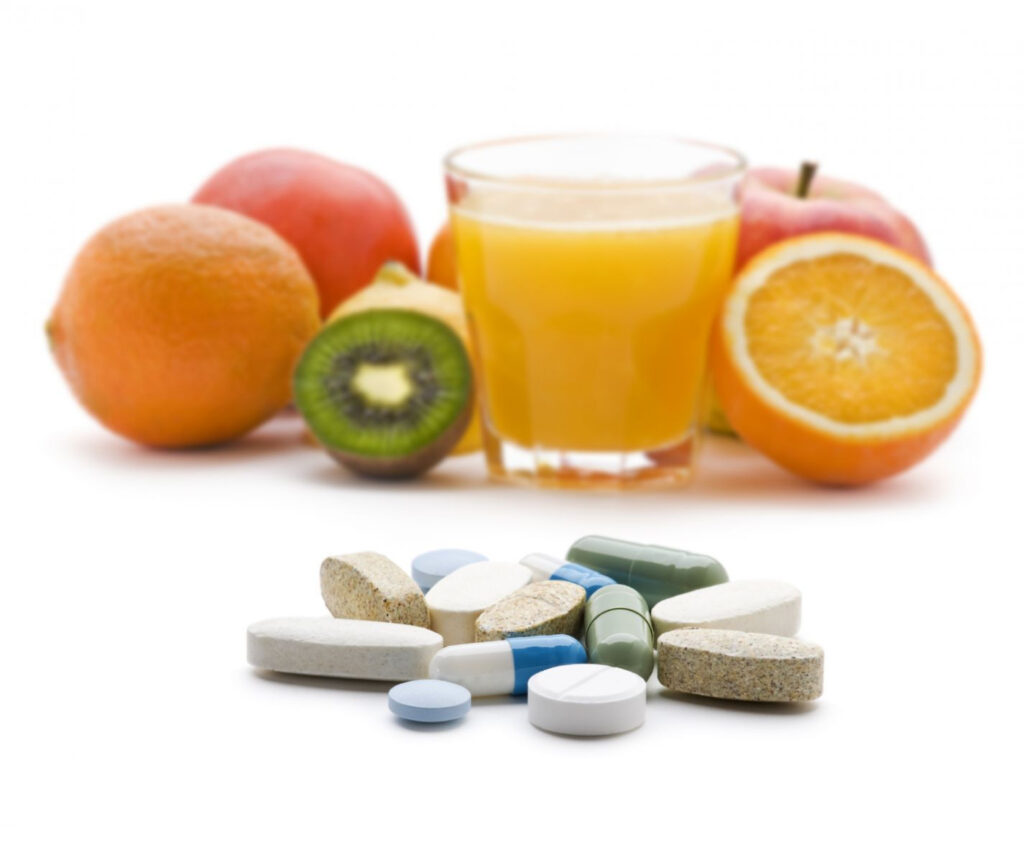What are the Vitamins?
Vitamins are organic compounds that are essential for various physiological processes in the body. They are required in small amounts to support normal growth, development, and overall health. Vitamins play crucial roles in metabolism, immune function, maintaining healthy skin, vision, and many other bodily functions.
Due to the body’s inability to synthesize the majority of vitamins in appropriate amounts, it is crucial to get vitamins through a balanced diet. Vitamin intake varies among diets, and shortages or overconsumption can result in a range of health issues. However, a balanced and varied diet can frequently offer the required vitamins without the use of supplements.
Although they can also be identified by their chemical names, such as niacin and folic acid, vitamins are typically denoted by certain letters of the alphabet, such as vitamin D or vitamin C. The water-soluble vitamins and the fat-soluble vitamins are the two categories into which Vitamins are divided based on how they are absorbed and if they are stored.

Water-soluble vitamins
Vitamins that dissolve in water are not retained by the body for long periods of time. They must be regularly consumed because excess amounts are typically eliminated through urination.
- Vitamin C (ascorbic acid)
- B vitamins
- Vitamin B1 -Thiamin
- Vitamin B2 – Riboflavin
- Vitamin B3 – Niacin
- Vitamin B5 -pantothenic acid
- Vitamin B6 – Pyridoxine
- Vitamin B7 -biotin
- Vitamin B9 – Folic acid
- Vitamin B12 -Cobalamin
Fat-soluble vitamins
These vitamins can be kept in the body’s fatty tissues for longer periods of time because they are soluble in fat. Excessive intake of fat-soluble vitamins can lead to toxicity
- Vitamin A
- Vitamin D
- Vitamin E
- Vitamin K
The recommended daily intake (RDA values) for these vitamins are different. Generally Vitamin requirement can be fulfilled naturally through healthy diet including vegetables, fruits, nuts, whole grains and proteins. Otherwise, the daily requirement can be fulfilled using external vitamin supplements.
Recommended amounts of different types of vitamins can be expressed in milligrams (mg), micrograms (mcg) or international units (IU)
| Vitamin | Recommended Dietary Allowance (RDA) or Daily Adequate Intake (AI) | |
| Women | Men | |
| Vitamin A | 700 micrograms | 900 micrograms |
| Vitamin B1 -Thiamin | 1.1 milligrams | 1.2 milligrams |
| Vitamin B2 – Riboflavin | 1.1 milligrams | 1.3 milligrams |
| Vitamin B3 – Niacin | 14 milligrams | 16 milligrams |
| Vitamin B5 -pantothenic acid | 5 milligrams | 5 milligrams |
| Vitamin B6 – Pyridoxine | 1.3 milligrams | 1.3 milligrams |
| Vitamin B7 -biotin | 30 micrograms | 30 micrograms |
| Vitamin B9 – Folic acid | 400 micrograms | 400 micrograms |
| Vitamin B12 -Cobalamin | 2.4 micrograms | 2.4 micrograms |
| Vitamin C | 75 milligrams | 90 milligrams |
| Vitamin D | 15 micrograms | 15 micrograms |
| Vitamin E | 15 milligrams | 15 milligrams |
| Vitamin K | 90 micrograms | 120 micrograms |

